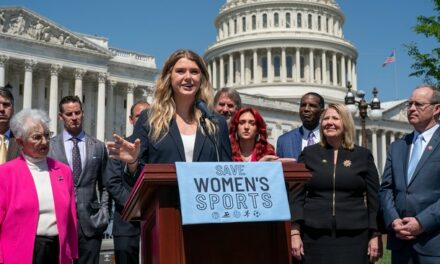We support our Publishers and Content Creators. You can view this story on their website by CLICKING HERE.

The thing about healthcare that makes it such a tough nut to crack is that the problems in the system are multifaceted. Yet, each challenge Americans face with healthcare can typically be traced back to one source: Government policy.
Advertisement
In this episode of “A Fresh Perspective,” I dive into a growing problem that is largely flying under the radar: Pharmacy deserts. More small pharmacies are shutting their doors – especially in rural and low-income communities, leaving residents without easy access to crucial medications.
So what’s causing this problem?
It’s a messy mix of government meddling, corporate cronyism, and soft-on-crime policies. In towns like Antwerp, Ohio, people are experiencing the impact of these issues firsthand, according to USA Today. The town’s only pharmacy closed down, meaning that residents now have to drive over 20 miles to fill prescriptions. For those who have cars, it’s an inconvenience. But what about those who cannot drive, such as the elderly? They are out of luck in many cases.
Government meddling has been one of the primary contributors to this problem, especially with smaller mom-and-pop pharmacies being crushed under the weight of Medicare and Medicaid. These programs are ostensibly intended to help low-income and elderly people. However, they reimburse pharmacies at lower rates than private insurance, which makes it harder for smaller operations to survive in today’s environment. Even further, many insurance companies won’t work with smaller pharmacies, preferring instead to partner with larger corporations like CVS and Walgreens.
There is also the crime factor. Over recent years, you have likely read story after story about companies closing up shop in major cities like New York and San Francisco due to property crime. Shoplifters have run rampant in these cities, forcing even major corporations to shut down stores.
Advertisement
Then, we have pharmacy benefits managers (PBMs), organizations that function as corporate middlemen deciding where patients can purchase their prescriptions and how much pharmacies are paid for them. Larger corporations tend to get the best deals, while independent pharmacies get the shaft.
Of course, we cannot forget the regulatory behemoth our government has become. Small pharmacies are being regulated into oblivion, with the state continually finding new and innovative ways to meddle in the healthcare industry with their unnecessary and cumbersome regulations. As with every other industry, overregulation has created an environment in which larger corporations, which can easily pay the cost of complying with regulatory burdens, flourish while smaller operations are crushed.
In the video, I explain how stripping away the government’s stranglehold on small business would solve most of these problems. Getting rid of the absurd regulations would allow smaller enterprises to compete – especially in rural areas. We need an actual free market that encourages this competition, not more regulations from egghead bureaucrats dipping their slimy tentacles into the equation.
Let me know what you think!

 Conservative
Conservative  Search
Search Trending
Trending Current News
Current News 




